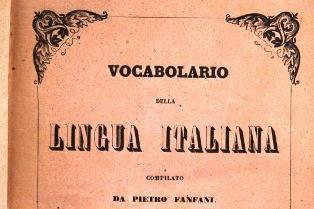

WTI Magazine #46 2014 October, 29
Author : Manuela Bianchi for learnitalygroup.com Translation by:
In a language we know that words and verbs never have just one meaning, and that combined with other words, verbs and prepositions can change their meaning and adapt in various different contexts. Among the many cases, today we have chosen the verb "venire" (to come).
It is said then "domani verremo con voi" (tomorrow we will come with you) in the sense that tomorrow we will go to the place where our interlocutor will be. "Vengo da te" (I'm coming to you) means that I always go to where my is; while "vengo a Firenze ad aprile" (I'll come to Florence in April) means that I'm going to Florence in April, and the person I am talking to is or will be there ion that moment.
Let's look at some of the most common expressions that use the verb "venire" while altering its meaning. Combined with the preposition "da" (from) it means to come from, or to arise: we can say "Mario viene da Roma" (Mario comes from Rome), "il profumo di rose viene dal giardino" (the fragrance of roses comes from garden), and "questa parola viene dal latino" (this word comes from the Latin).
In Italian, to say that you have been informed about something or made aware of a fact, we use the expression "venire a sapere" (to come to know): "Sono venuta a sapere che tuo fratello si è sposato" (I've come to know that your brother got married). You can use the verb "venire" also with the meaning of "nascere" (to be born) and "essere scoperto" (to be discovered): it is said that a person "viene alla luce" (comes to light) to say that he or she is born and that "dei reperti archeologici sono venuti alla luce" (archaeological finds have come to light) in the sense that they were discovered.
Some expressions are less easy to guess such as "venire a pennello" (literally: come with a brush) which means "be appropriate" or "happens at the right time", which among other things can be replaced by a not less odd expression like "capitare a fagiolo" (literally: "happens to bean". If we're talking with someone and the conversation is too long, and we want to focus our attention on the essential point of the problem without many digressions, we urge the person we are talking to "venire al dunque" (get to the point), "venire al sodo" (cut to the chase), "venire al punto" or "venire al nocciolo".
"To come" takes also the sense of "arriving", "showing up", "appear in a more or less sudden". An example is in sentences regarding an illness: "mi è venuto il mal di gola" (I have a sore throat), "mi è venuta la febbre" (I have a fever), "mi è venuta l'influenza" (I have a flu). Another example regards thoughts or feelings: I can have doubts ("mi vengono dei dubbi") or a hunch ("mi è venuta un'idea"), a suspect ("mi viene un sospetto") or a wish ("mi è venuto un desiderio").
Moreover, if we get tired about something we can say that "mi viene a noia"; if we don't remember an event, a date, a name we can use the expression "non mi viene in mente". And if someone is doing something and he/she says "come viene, viene", it means he/she is going to finish it in an approximate way.
When two people "vengono alle mani", it means that they are arguing until they use their hands on each other; and if in a situation we say "venire ai ferri corti" we mean that we are about to have a conflict.
Finally, let's remember that "venire" used together to prepositions and adverbs could mean to come down ("venire giù"); to come before or to be more important ("venire prima"), to follow ("venire dopo"), to leave some place ("venire via") or to get out ("venire fuori"). For now wer have enough: more is yet to ... come.
If only it were easier ... Magari!
A student in our Turin LearnItaly headquarters asked us what exactly "magari" does mean. Good question. Not all languages have a straight traduction for Italian "magari", so let's see it. Let's contextualize the problem: let's start with two sentences like "verresti con me a quella efsta? Magari!" (would you come with me to that party? I wish!) or "Magari ci sentiamo in settimana" (Maybe we can talk during the week).
"Magari" can be an adverb or an exclamation meaning "Maybe, possibly". In the first case t expresses a desire, a hope to do or achieve something: for example if we want to go to see Madonna in concert and someone asks us "Ti piacerebbe andarci?" (Would you like to go?), we answer "Magari! Sarebbe fantastico (it would be awesome)". The same thing occurs in the phrase "Magari riuscissi a parlargli" (I wish I could talk to him).
Instead, in a phrase like "Magari ti chiamo in serata" (Maybe I'll call you in the evening), it works like an adverb, with the meanings before specified. So, to translate into the English language "magari" you should understand the meaning; and to use it correctly in Italian, you must know its double meaning and use.
You may be interested
-
Italian world language teacher 2015-2016
FRAMINGHAM PUBLIC SCHOOLS - JOB DESCRIPTION TITLE: World Language Teacher - Italian...
-
'Italy Stay Strong': What The Coronavirus Eme...
On the northern coast of Sicily, looking out toward the magnificent Aeolian Islands, Milaz...
-
‘Carnivale’ doubles as event to persuade YSU...
Lent begins next Wednesday but the Italian community of Youngstown celebrated their own Ma...
-
‘Il Canto degli Italiani’: What the Italian n...
The Italian football team and its fans are known for belting out rousing renditions of the...
-
‘In Other Words’ review: Jhumpa Lahiri’s love...
By Howard Norman Jhumpa Lahiri lived with her family in Rome in 2012. Though she...
-
‘Let’s Choose Three Words’: the Project dedic...
‘Let’s Choose Three Words’ is a new educational project promoted by the Ministry of Foreig...
-
‘Living in Rome’ talk accompanies Italian din...
An Italian Dinner and Talk on "Living in Rome: Duties, Distractions and Delights" will be...
-
‘Sons’ save Primavera program
A community program providing supplemental education in a foreign language to community ch...










